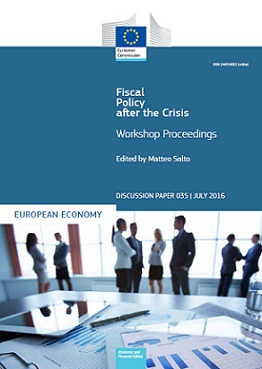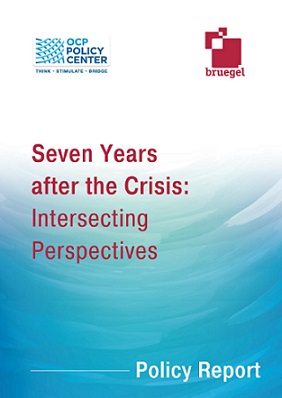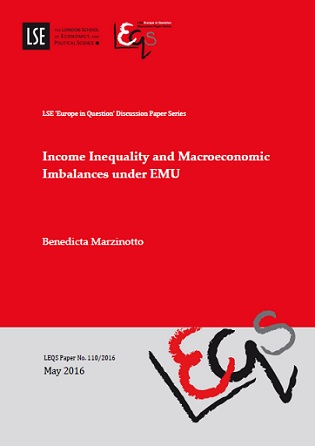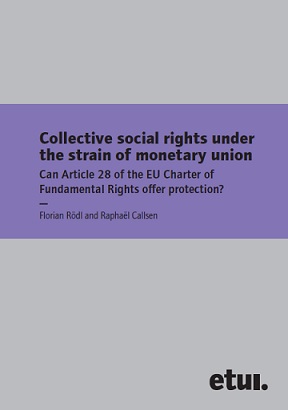Ersal-Kiziler, Eylem, Nguyen, Ha., (2016), “Euro Currency Risk and the Geography of Debt Flows to Peripheral European Monetary Union Members”, Policy Research Working Paper;No. 7338. World Bank, June The pattern of debt flows to peripheral European Monetary Union members seems puzzling: they are mostly indirect and channeled through the large countries of the European Monetary Union. This paper examines to what extent the introduction of the euro and the elimination of …Read More
Public Investment Stimulus in Surplus Countries and their Euro Area Spillovers
Veld, Jan in ‘t, (2016), “Public Investment Stimulus in Surplus Countries and their Euro Area Spillovers”, European Commission, Economic Brief 016, August This note describes model simulations that broadly confirm the view that at the current juncture, with monetary policy constrained by the zero interest rate floor, a debt-financed increase in government investment in surplus countries will have positive GDP spillovers to the rest of the euro area. If monetary policy …Read More
Labour market modelling in the light of the financial crisis
ECB, (2016), “Labour market modelling in the light of the financial crisis”, ECB, Occassional Paper Series No 175, Αugust This paper revisits the empirical relationship between unemployment and output, and its evolution following the financial crisis of 2008, with the aim of drawing potential consequences for labour market modelling strategies in place within the European System of Central Banks (ESCB). First, the negative correlation between output and unemployment (Okun’s law) at …Read More
Fiscal Policy after the Crisis
Salto, Matteo, (2016), “Fiscal Policy after the Crisis”, European Commission, Discussion Paper 35, July This paper presents the proceedings of the annual Public Finance Workshop organised by the Directorate-General for Economic and Financial Affairs in Brussels on 19 January 2016 in relation with the publication of its Public Finance in EMU 2015 Report. After the double-dip recession between 2009 and 2013, growth is gradually returning to the EU and the euro area but it …Read More
Aggregate Uncertainty and Sectoral Productivity Growth : The Role of Credit Constraints
Choi, Sangyup, Furceri, Davide, Huang, Yi, Loungani, Prakash, (2016), “Aggregate Uncertainty and Sectoral Productivity Growth : The Role of Credit Constraints”, IMF, Working Paper No. 16/174, 16 Αugust We show that an increase in aggregate uncertainty—measured by stock market volatility—reduces productivity growth more in industries that depend heavily on external finance. This effect is larger during recessions, when financing constraints are more likely to be binding, than during expansions. Our statistical method—a …Read More
Quarterly National Accounts
OECD, (2016), “Quarterly National Accounts”, Volume 2016 Issue 1, 2 August The OECD’s Quarterly National Accounts contains a selection of the accounts most widely used by economic analysts: GDP by expenditure and by industry, gross fixed capital formation by asset, gross fixed capital formation by institutional sector, and components of disposable income are all shown at both current and constant prices. Saving and Net lending and GDP by income at current …Read More
Explaining Non-Performing Loans in Greece: A Comparative Study on the Effects of Recession and Banking Practices
Monokroussos, Platon, Thomakos, Dimitrios D., Alexopoulos, Thomas A., (2016), “Explaining Non-Performing Loans in Greece: A Comparative Study on the Effects of Recession and Banking Practices”, LSE, Αugust Using a new dataset of macroeconomic and banking-related variables we attempt to explain the evolution of “bad” loans in Greece over the period 2005-2015. Our findings suggest that the primary cause of the sharp increase in non-performing loans (NPLs) following the outbreak of the …Read More
Seven years after the crisis: intersecting perspectives
Berahab, Rim, Boot, Nuria,Dadush, Uri, El Aynaoui, Karim, El Mokri, Karim, Tagliapietra, Simone, Wilson, Karen E., Wolff, Guntram B., Zachmann, Georg, (2016), “Seven years after the crisis: intersecting perspectives”, Bruegel, 19 Αugust This joint publication brings together the papers produced as part of the first collaboration between Bruegel and the OCP Policy Center. Within the theme of “Seven Years after the Crisis: Intersecting Perspectives” our two organisations launched a “Platform for Advanced & Emerging Economies Policy Dialogue” in Rabat on 1 April …Read More
Income Inequality and Macroeconomic Imbalances under EMU
Marzinotto, Benedicta, (2016), “Income Inequality and Macroeconomic Imbalances under EMU”, LSE, Μay This paper explains the build-up and reversal of euro area macroeconomic imbalances by considering the interaction between the underlying income distribution in each country and EMU-induced financial liberalization. The argument is that the sharp increase in money supply since the early 1990s had the effect of relaxing collateral constraints for illiquid lowerincome groups, whilst having no specific impact on …Read More
Collective social rights under the strain of monetary union
Rödl, Florian, Callsen, Raphaël, (2016), “Collective social rights under the strain of monetary union”, ETUI This report examines in depth the legality of the measures taken by the European Union, alongside the European Central Bank (ECB) and the International Monetary Fund (IMF), in the wake of the financial and debt crisis. Beginning with a factual presentation of the European Union’s post-crisis agenda, which has focused on a flexible, productivity-based wage policy, …Read More









